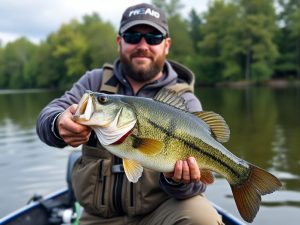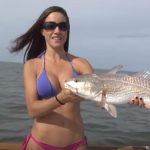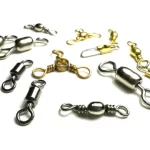Weekend anglers often find themselves trying countless lures, techniques, and locations in pursuit of that elusive trophy bass, only to be met with disappointment. Despite the frustration, success can be achieved with the right approach. A recent weekend outing brought to light some key lessons in hooking bigger bass, offering a valuable guide for fellow fishing enthusiasts.
Overcoming the Challenges of Bass Fishing
Bass fishing is notorious for its unpredictability. Hours spent on the water can yield little more than small catches, especially for anglers competing in local tournaments. However, through shared experiences and insights, there are ways to improve as a bass angler.
Revisiting the Fundamentals: Gear Matters
Success often comes down to fundamentals. While it’s tempting to chase the latest gear trends, reevaluating basic equipment can make all the difference. For example, opting for a medium-heavy rod with a fast-action tip and pairing it with braided line can enhance sensitivity, allowing anglers to detect even the faintest bites and turn missed opportunities into solid catches.
Location is Key: The Importance of Underwater Structures
A seasoned angler recently emphasized the critical role of location. Targeting areas like secluded coves, fallen trees, and grassy beds can significantly increase the chances of hooking bigger bass. Tools like topographical maps and fishing apps make it easier to identify these prime locations before even setting out on the water.
Lure Selection: Matching the Hatch
Another essential lesson is the importance of matching the hatch. Bass are opportunistic feeders and tend to go after prey that is readily available in their environment. Observing the local baitfish and selecting a natural-colored soft plastic that mimics the movement of shad or other prevalent species can turn an ordinary fishing trip into a more successful outing.
Technique and Presentation: Small Changes, Big Results
The presentation of the lure is just as important as the lure itself. Techniques like jigging, drop-shotting, and Texas-rigging can dramatically improve the odds of a catch. On a recent trip, slowing down the retrieve while using a Texas-rigged worm proved to be a game-changer, mimicking the erratic movement of a dying baitfish and enticing more aggressive strikes.

Reading Nature’s Cues: Weather and Timing
Weather patterns and timing play crucial roles in bass behavior. Factors like wind, water temperature, and barometric pressure can influence activity levels. While overcast days with light winds are often considered ideal, early morning and late evening hours also offer excellent fishing opportunities, regardless of weather conditions. Using apps to track changes in weather and pressure can help anglers plan more effective outings.
Understanding Bass Behavior
A deeper understanding of bass psychology can also yield better results. For example, during spawning season, bass are highly territorial, often striking at lures that provoke irritation rather than hunger. A brightly-colored jig presented near a nesting site can entice a strike from a defensive bass that might otherwise ignore other baits.
Sharing Knowledge: The Power of Community
Participation in local bass fishing communities is invaluable. Fellow anglers often provide useful tips during informal gatherings, such as adjusting casting angles based on the sun’s position or recognizing subtle shifts in water color. This shared wisdom is a powerful tool in refining fishing strategies.
Persistence Pays Off
Persistence is the final key to success. Experimentation with different lures, locations, and techniques is crucial for finding what works. Even when bites are scarce, continuing to adjust and adapt will eventually lead to success. On one unforgettable weekend, hours of trial and error culminated in hooking a large bass that had been elusive for months.
Landing bigger bass requires a mix of patience, strategy, and an ongoing commitment to learning. By mastering the basics, focusing on key locations, refining techniques, and leveraging the wisdom of the fishing community, anglers can increase their chances of success and make each fishing trip more rewarding.
Image/Source: thebasscast





